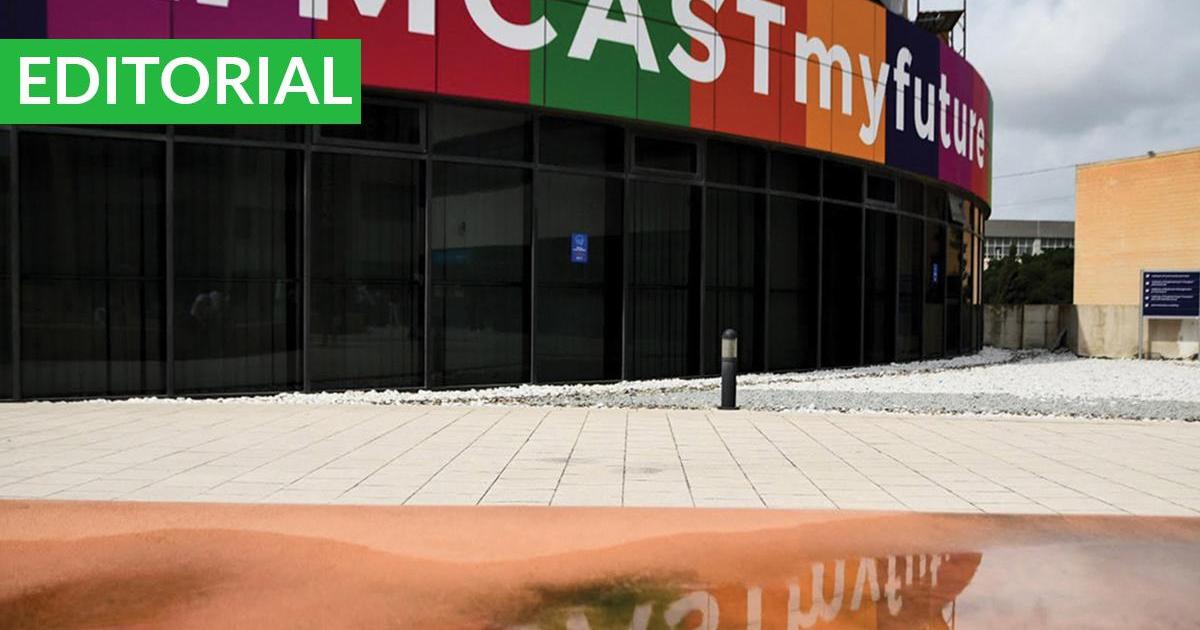By Times of Malta
In a rapidly changing world, the need to adapt and enhance educational systems has become more crucial than ever. Every country views excellence in educational outcomes as a key indicator of economic prosperity. Malta, too, must ensure that the money it spends on education prepares our younger generations to secure the kind of well-paid jobs that the modern economy can offer. In an interview with Times of Malta, MCAST principal Stephen Vella provided some details on how the vocational college’s horizon is evolving. Vella argues that MCAST does not just provide a second chance to young people who did not optimise their primary and secondary education. MCAST will also launch the Institute for the Trades in the next academic year, offering various short courses related to construction, textile techniques, and metalwork. MCAST has also begun offering a veterinary assistant course. While these developments reveal a dynamic approach to vocational education, they also raise questions as to whether the cost-benefit element of vocational education planning is indeed being optimised. We need to ask: Is expenditure on tertiary education at the university and MCAST being spread too thinly, with a multitude of courses that may not always lead to graduates landing the kind of job that the economy can offer? Vella argues that there is no wasteful competition between the University of Malta and MCAST. Still, he acknowledges that there are overlaps with courses, such as engineering and nursing. Why are educational policymakers not focused on avoiding duplication by rationalising the training that engineering and nursing students can opt for? Vocational education must adapt to the evolving needs of its stakeholders. Upskilling and reskilling activities must meet the immediate and emerging skill demands to cater to the needs of more mature workers. Employers must collaborate with MCAST to ensure that this continuous learning objective is achieved, so that workers’ skills are not rendered obsolete without the opportunity to acquire new ones. Skills anticipation is also central to effective educational reform planning. Most countries prepare job projections that span a 15-year time horizon. This critical planning tool is likely not being utilised as effectively as it should, resulting in a risk of having too many graduates in professions and trades that may be popular in the collective mindset but offer limited opportunities for our young people. This could lead to underemployment of young people with qualifications in subjects that are not much in demand in the economy. Policymaking today requires an understanding of how we will work and learn tomorrow. It is as crucial for policymakers to research how many lawyers and accountants the country will need in the coming decade and beyond, as it is to ask how many veterinary assistants, plumbers and electrical assistants with basic knowledge, weavers, embroiderers, plasterers, and goldsmiths are likely to find good jobs when they finish their vocational education. Ultimately, the business community must be involved in defining how best to allocate the limited financial and human resources to give our young and not-so-young students the best chance to realise their dream of employment that helps them achieve their ambitions. MCAST, like the university, will always face a challenge of limited financial and human resources. One hardly needs to stress that the quality of the educational outcomes for graduates in vocational education courses is far more critical than the actual number of graduates. Unfortunately, in the last year, weak political leadership led to a protracted dispute with the MCAST teaching staff. Hopefully, future news coming from MCAST will have a narrative that confirms our younger generation’s future is being underpinned with effective planning that enhances employability.
